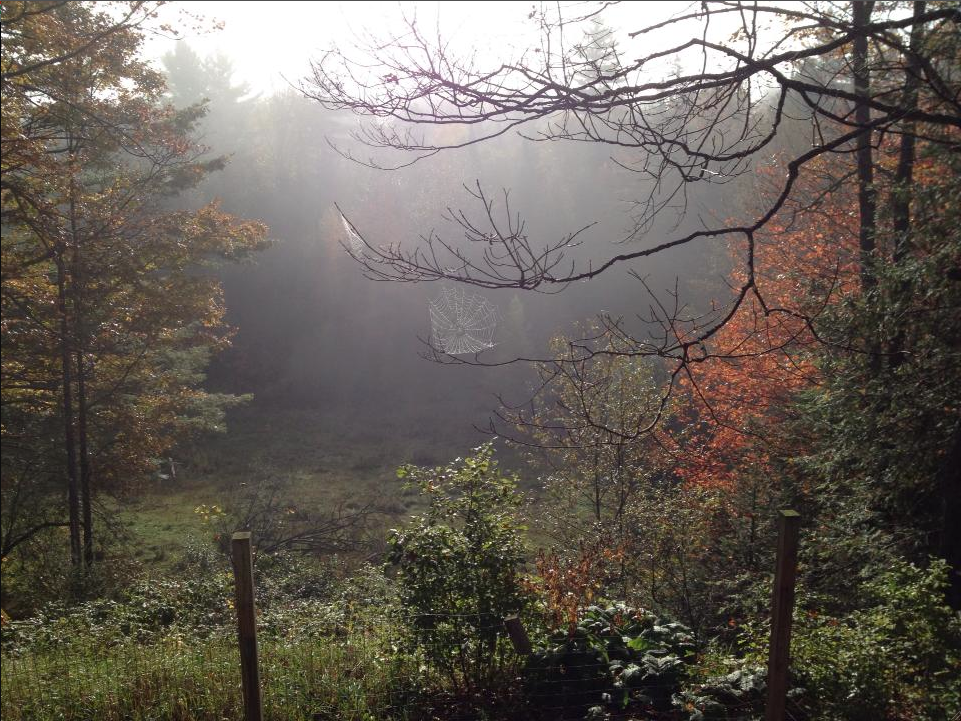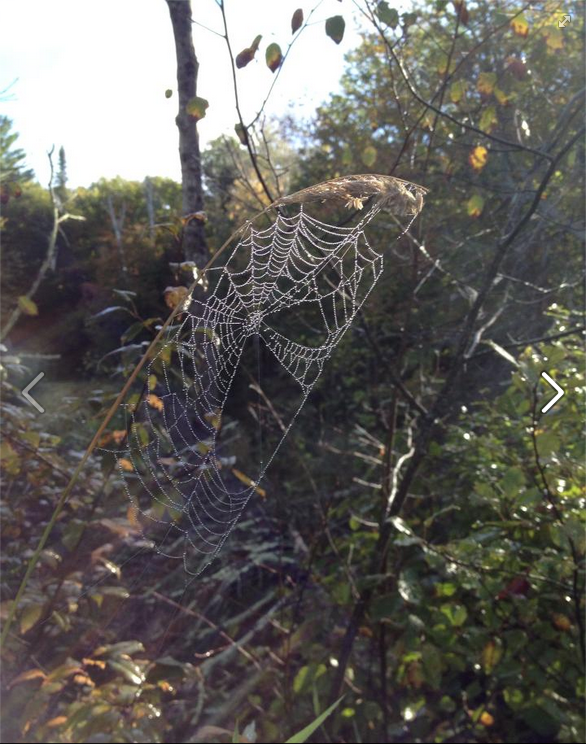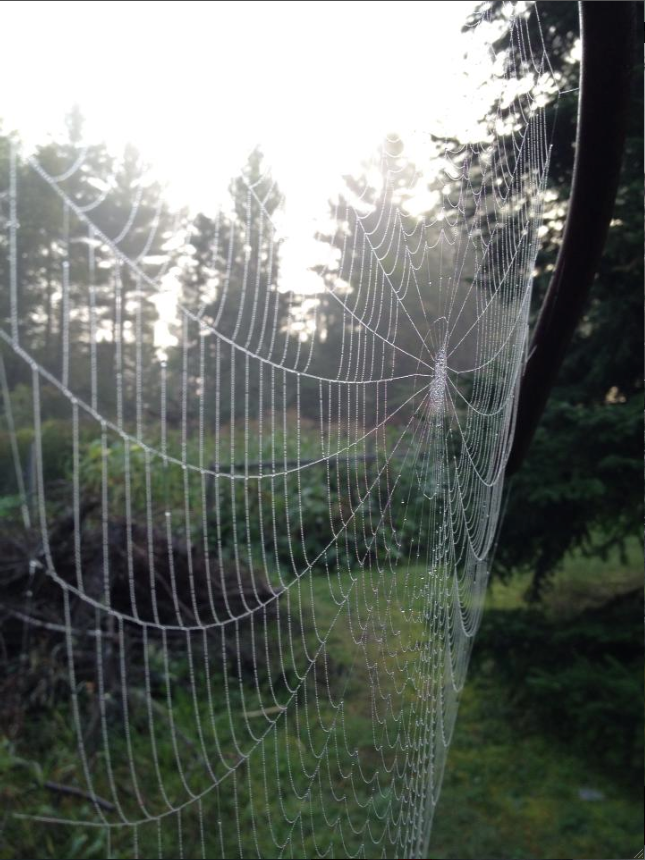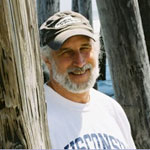TW Column by Steven Lewis
Unintentional Writing—No Map, No Compass, No Guide

Each morning, as I sit down to write, this is where the journey begins:
June sometime. 1945. My late parents, whom today I trust must have loved each other in ways unobserved by their children, are joined in some form of carnal embrace, and I am conceived—a miracle of sorts, this being eight years after their last child had, by all accounts, adequately completed their nice little family. Maybe it was a celebration of the World War coming to its imminent end? My mother’s birthday present? An “accident” after one too many martinis with the Sussmans?
Who knows?
Certainly not me. And yet, I’ve occasionally sought comfort in believing I’m part of a cosmic plan—a “meant to be” as my more sentimental friends say. Not an accident of a random universe speeding along some back road, foot jammed on the brake, skidding off the gravel shoulder, banging off a guardrail or tree and landing in a muddy ditch. At such moments, I find myself at a complete loss to explain the reason for anything, except perhaps friction.
Of course I’ve heard platitude on platitude (scriptural, self-medicating, New Age) concerning fate: God has a reason for everything. Or, less ecumenically: There is a reason for everything in the universe.
But at the dizzying end of any ordinary day spent looking for reliable explanations of seemingly inexplicable events, I know only one thing for certain: If there is a God or a Guiding Force, no one knows His or Her or Its will.
No one.
As H.L. Mencken wrote, “Penetrating so many secrets, we cease to believe in the unknowable. But there it sits nevertheless, calmly licking its chops.” Uncertainty itself sleeps with us, drives to work with us, sits down at the table with us, picks up the knife and fork, accompanies us to bed. Ushers us into the deepest night.
• • •
Come along with me now, to the achingly miserable recent death of my boyhood friend Jon, at the Calvary Hospital Hospice in the Bronx. Bloated stomach. Yellowed skin. Bony limbs. Diapers. Cries of anguish.
 There’s no need for more description, but I do need to add that my dear friend, a sweet man in life, a lovable scoundrel always with a joke at the ready, alone as he was, was not alone at all in his unabated misery. Walking down the deathly quiet halls at Calvary Hospice, I could see, I could hear, I could feel, I could smell, in room after room, the ceaseless moaning of humanity beyond these hospital walls.
There’s no need for more description, but I do need to add that my dear friend, a sweet man in life, a lovable scoundrel always with a joke at the ready, alone as he was, was not alone at all in his unabated misery. Walking down the deathly quiet halls at Calvary Hospice, I could see, I could hear, I could feel, I could smell, in room after room, the ceaseless moaning of humanity beyond these hospital walls.
That is something to ponder, yes. But that’s not quite it. That’s not it at all.
In leaving Calvary at the close of each visit, I was not yet overwhelmed with sadness, not yet grieving—that was all to come. Instead, I’d walk out of Jon’s room feeling a little irate. Some vague annoyance would accompany me down the hallways and turn into tight-lipped irritation riding down the elevator, until I’d be striding furiously across the lobby, pushing the glass door open into the night air, a scream trapped in the back of my throat.
Not at the Maker (if there is a Maker) but at the single most fantastical platitude of all comforting platitudes ascribed to the Maker one hears at places like Calvary Hospice:
God does not give us more than we can bear.
Really? What about my friend Jon writhing in pain, begging for an end to his torture? What about the room after room of dark-eyed anguish I’d seen at this one hospice?
God does not give us more than we can bear—my ass!
After turning the ignition, gunning the motor, spinning my wheels out onto Eastchester Avenue, making a couple of squealing turns, and racing up the ramp to the Hutchinson River Parkway, I would finally find my voice, muttering aloud, right at the edge of bellowing: What about all those innocent disfigured babies gasping for breath, day after day, century after century after century? What about those starving innocent children, continent by continent, their bloated stomachs, their begging eyes? What about the hideously mangled soldiers over eons and eons of pointless warfare? The genocides of Mao Tse-tung, Adolph Hitler, Stalin? The ache of parents everywhere at all times for which there is never enough balm?
And finally, but not finally, never finally, in a trembling whisper: What about my poor suffering sweet friend Jonnie?
• • •
Jon was a salesman, not a writer, so it’s ironic he would lead me to this question: What makes one piece of writing eternal and another temporal?
I’m not talking about craft, the elements of style, the qualities that make up good or very good or even superb composition. And I’m not making distinctions between prose and poetry; transcendence transcends form. I’m interested only in a narrative presence that is indelible. Writing that is beyond memorable. Unforgettable. That ineffable quality that elevates the writer and reader to an understanding beyond the control of words, beyond meaning, yielding truth itself.
I’m thinking now of this passage in James Wright’s stunning poem, “A Blessing”:
She is black and white,
Her mane falls wild on her forehead,
And the light breeze moves me to caress her long ear
That is delicate as the skin over a girl’s wrist.
Suddenly I realize
That if I stepped out of my body I would break
Into blossom.
And now I’m wondering about that illogical and unpredictable conflagration of language and experience that would allow any of us to break into blossom. Living, as I think we do, in the midst of the incomprehensible, we spend inordinate amounts of our lives trying to make sense of it all. I get that. It’s singularly human to yearn to understand what is beyond our grasp. In a near-religious fervor, we aim to establish reason in an unreasonable world.
The product of that yearning is what I call intentional writing. In Heart of Darkness, Joseph Conrad compared it to “the yarns of seamen…the whole meaning of which lies within the shell of a cracked nut.”
That’s what so many writers over history have attempted to do: crack the nut and find the fruit. They brainstorm. They make outlines. They plot out marvelous essays and stories and novels and plays that are tight and gripping, entertaining and edifying. They create cliffhangers that bring us to tears, force us to laugh. And by the time the last page has been turned, they have successfully perpetuated the Big Lie, the soothing myth that the universe makes sense.
These intentionalists—excellent writers like Charles Dickens, Jane Austen, Ayn Rand, Stephen King, Barbara Kingsolver, among so many others—may be said to “write sober, edit sober.” Although they may aim to reveal some consummate truth, in the end, their works are entertainments. Perhaps very serious, even grave entertainments, but they contain no magic other than the illusion of magic. They will not—cannot—lead a reader into the darkness where pure light is found.
In contrast, there are writers I call intuitivists—Marcel Proust, Anais Nin, William Faulkner, Virginia Woolf, James Joyce, Flannery O’Connor, Zora Neale Hurston, Haruki Murakami, Jack Kerouac, Alexandra Fuller, and so many more. They break the rules many of us first learned in John Gardner’s The Art of Fiction.
Intuitivists begin the writing process without a plan, a plot, or something to prove, just a nagging hunger to enter into the unknown and give it form and language. They move through the darkness like Sophocles’s Oedipus, wholly ignorant of the fate of their stories, hoping only to arrive at a place where meaning is found “not inside like a kernel but outside, enveloping the tale which brought it out only as a glow brings out a haze” (also from the intuitive Conrad in Heart of Darkness).
Trusting in some subconscious force or forces to lead them into the light, intuitivists “write drunk, edit sober.” Like Oedipus, who had no role in determining the Oracle’s declaration—no voice in his parents’ decision to have him killed as an infant—no input into the slave’s unwillingness to commit infanticide—intuitive writers do not control their destinies, literary and otherwise. And like Oedipus, their stories stick in our collective craws. A finger behind the eye for all time.
• • •
Which brings me, brakes now gone, blinded, engine stalled, driven by gravity down the back side of the mountain, all the way back to Jon’s funeral.
 The rabbi is standing in front of the gaping hole in the ground at the New Montefiore Cemetery—Section 2, Block 5, Row 3, Division C—where my buddy’s body lies in repose. The rabbi looks around and tells the assembled mourners that Jon wrote his own eulogy over the last weeks of his life.
The rabbi is standing in front of the gaping hole in the ground at the New Montefiore Cemetery—Section 2, Block 5, Row 3, Division C—where my buddy’s body lies in repose. The rabbi looks around and tells the assembled mourners that Jon wrote his own eulogy over the last weeks of his life.
Murmurs right and left. To my right is his grieving widow, her sister, and a friend. To my left are Jon’s grown children, their mother (his first wife), and a few dozen friends from his earlier life. The two groups despise each other. It’s an uninspired story of infidelity and betrayal, told and retold over the millennia, full of the sound and fury that accompanied my leaving the hospital each night.
At first, the eulogy is sweet, like our lost friend. It is funny, like Jon. He cracks a joke about his friends. He writes lovingly of his son. Just like Jon. But a paragraph or two later, it grows edgy, not at all like the man we knew. Everyone standing around the grave shifts weight, glances around, as his daughter is given just a couple of unsentimental sentences. Not nice. Then it becomes cruel, something his lifelong friends don’t ever remember seeing in him.
We glance at each other, then into the hole in the earth, as the rabbi delivers an uppercut to his first wife—and their children standing by her side: a flowery, grandiloquent passage (so unlike Jon!) about his second wife, the love of his life, the moon and stars, mountains and oceans, the only one he ever loved.
After the funeral, the two groups separating in their pain and loss, Jon’s grieving widow tells us with a thin smile that while our boyhood friend Jon wrote the eulogy, she typed it up.
Oh?
Oh.
Ahhhhhhhhhhhh….
I imagine that had the grieving widow not added her voice to his (and of course I have no proof that she did), the eulogy would have been sweet and kind and, I’m sorry to say this, uninspired, like my friend, a good man but not a writer, not a man who examined his life. That eulogy would have been meaningful to those who assembled to mourn his passing, a comfort to his children and both his wives, but it would have been wholly forgettable to the rest of us a day later.
In contrast, though—and I’m sorry to say this as well—the subtext of the widow’s clumsy and vindictive attempt at prose is the stuff of the heavens and the earth. It’s the real work, the syntax that only writers who break the rules can achieve. The primacy—and the unadulterated nature—of the true voice.
It’s the voice I hear from intuitive writers. Uncontained, like Whitman, they seem to move along on instinct, following an unpaved path through the cave, running fingers blindly along rough rock walls with only one intention: to seek light, to seek fresh air. They are driven on not by the mind, but by the lungs and the belly. It is a perilous journey, one that easily leads to dead ends, to misfits, to home, to the awful truth—a truth that’s also full of wonder.
So while it is true that Jon was likely robbed in death of the pure intention of his words, the eulogy we heard in the cemetery that day spoke eloquent volumes about the human predicament and the futility of finding the truth—about anything—in life.
I will never forget that eulogy. Not for what it intended to say, but for where it brought me after the service. I walked alone among the thousands and thousands of stones poking out of the earth in that one Long Island burial ground, wandering this way and that, to a place I didn’t at first intend to go that day, down one lane and up the next, to the plot where my parents, Samuel I. Lewis and Lillian A. Lewis, are buried along with their stories.
I stood in front of their headstones, placed pebbles on them for reasons I still do not understand. I pondered them in my heart.
Publishing Information
- Minority Report by H. L. Mencken, originally published in 1956 (Johns Hopkins Press, 2006).
- “A Blessing” by James Wright, originally published in his collection The Branch Will Not Break (Wesleyan University Press, 1963).
- Heart of Darkness by Joseph Conrad, originally serialized in 1899 in Blackwood’s Edinburgh Magazine, then published in Youth: A Narrative and Two Other Stories (William Blackwood & Sons, 1902). The quotes are in the voice of Marlow, Conrad’s narrator.
Art Information
- "Large Spiderweb" © Shamus Langlois; used with permission.
- "Spiderweb with Dew" © Shamus Langlois; used with permission.
- "Spiderweb" © Shamus Langlois; used with permission.
 Steven Lewis is a contributing writer and columnist at Talking Writing. He notes of this column:
Steven Lewis is a contributing writer and columnist at Talking Writing. He notes of this column:
Working on an essay about intentionality in writing turned out to be the most difficult piece of writing I've ever done. I had to figure out how to write about the unintentional process without outline, guide, or intention!#$%^&*?! I owe an enormous debt of writerly gratitude to Martha Nichols for her visionary editing of this piece.
